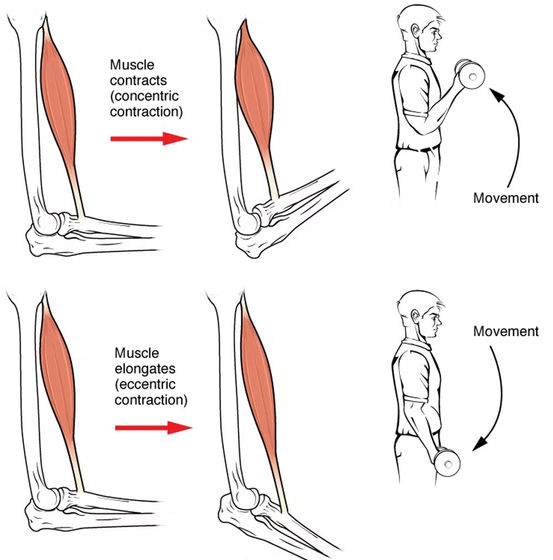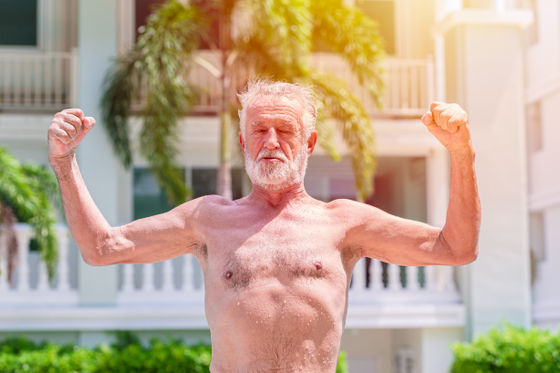Why do muscles weaken as we get older?

There are a wide variety of sports in the world, but few athletes over the age of 50 compete in the world's best athletes. Professor Roger Fielding of Tufts University, known as an authority on physical fitness in the elderly, explains the underlying mechanism of the fact that muscle strength declines with age.
50-year-old muscles just can't grow big like they used to – the biology of how muscles change with age
Professor Fielding is studying the effect of so-called muscle training, and various muscle training such as weight training that applies more load than own weight using equipment as well as weight training such as push-ups and sit-ups (raising the upper body). It is said that the research target is an event. Professor Fielding cites 'muscle hypertrophy,' which increases muscle strength and size, as a process that occurs in the body while continuing muscle training. When muscle hypertrophy occurs, the amount of muscle fibers and cells increases, so it becomes easier to handle training menus that were initially thought to be difficult, and you will be able to challenge high-load menus.
According to Professor Fielding, when a muscle is contracted under a high load such as weightlifting, the concentration of various chemical substances changes inside the muscle. In healthy young people, when a muscle is contracted under high load, a special receptor on the surface of muscle cells detects muscle movement and activates a metabolic pathway that promotes the production of proteins that cause muscle hypertrophy. , It seems that the expression of genes that produce proteins involved in muscle contraction is activated.

This mechanism is similar in the elderly. However, in the case of young people's muscles, a signal that promotes muscle hypertrophy is strongly emitted even with a slight exercise, but as the years go by, the signal that promotes muscle hypertrophy becomes weaker. Professor Fielding explains, 'The signal weakens around the age of 50 and becomes more pronounced over time.'
Recent studies have also shown that the expression levels of exercise-related genes change in response to changes in the above signals. In an
The above results simply indicate that 'elderly people have difficulty building muscles due to muscle training.' While these facts are an immovable reality, Professor Fielding said, 'Exercise remains the most important activity for good health for older people. In our study, it was for muscle training. It is true that the response declines with age, but it is also clearly shown that 'the effect of muscle training never becomes zero'. In addition to this, there are elderly people with problems with athletic ability. We also found that continuing programs on oxygen exercise and muscle training reduced the risk of having a disability by as much as 20%. Even in the elderly, there is an increase in physical fitness and function, and the risk of having a disability. The health benefits of exercising, such as reducing aging, are enormous. When exercising next time, 'I'm building muscle for the motor functions and health that are essential to my future life.' Please try to think. '

Related Posts:
in Note, Posted by darkhorse_log







